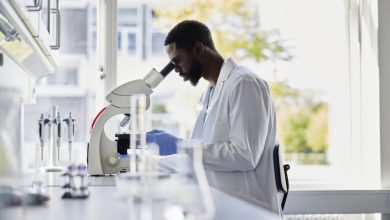An Ob-Gyn Shares What To Expect


Prenatal testing is important to monitor you and your baby’s health, but exactly what is involved in these screenings?
Here, an obstetrician-gynecologist talks about what to expect during your second trimester prenatal visits, including what tests may be done, when they usually happen, what they look for, how they’re performed and what the results may mean.
When is the second trimester?
Before we can discuss second trimester prenatal visits, we need to answer the question, “When does the second trimester start?” According to Dr. Sudheer Jayaprabhu, an ob-gyn at Christus Health in Texas, most definitions of second trimester have it stretching from week 13 to week 28 of the pregnancy.
Prenatal testing during the second trimester
Quad screen
This voluntary blood test performed between weeks 16 and 18 measures several hormones produced during pregnancy. These tests, also called multiple markers, calculate the potential risk for Down syndrome, neural tube defects like spina bifida and Trisomy 18, according to Stanford Medicine. These tests aren’t always accurate, but are used to see who might need more testing.
If there is an abnormal result,” Jayaprabhu says, “genetic counseling and ultrasound are usually performed by a Maternal Fetal Medicine specialist.” Amniocentesis (placing a needle under ultrasound guidance into the uterus and withdrawing amniotic fluid for evaluation) can be performed. However, this test comes with some risk of miscarriage.
“I always counsel my patients to think through the entire process,” Jayaprabhu says. “I have had patients who get an abnormal blood test and then don’t want the amniocentesis due to the risks of miscarriage. It leads to a lot of anxiety from this point till delivery.”
If one of these birth defects is found, there is no pre-birth treatment.
RELATED: Your Second Trimester: What To Expect
Ultrasound
During weeks 18 to 22, an ultrasound screening for abnormalities in fetal body structure is usually performed, the Cleveland Clinic says. Ultrasound will be used to take images inside your uterus, to make sure the fetus is growing normally. You may also learn the sex of the fetus. Some of the specific areas they look at include:
- Heart
- Brain, neck and spine
- Kidneys and bladder
- Arms and legs
- Hands, fingers, feet and toes
- Lips, chin, nose, eyes and face
- Chest and lungs
- Stomach and intestines
The ultrasound technician will also:




